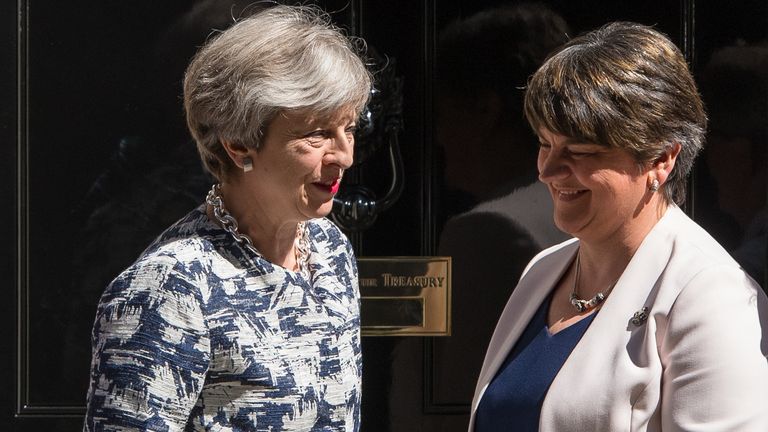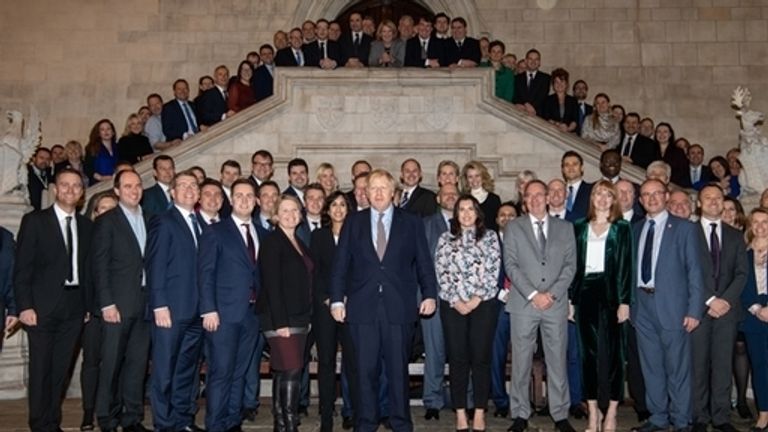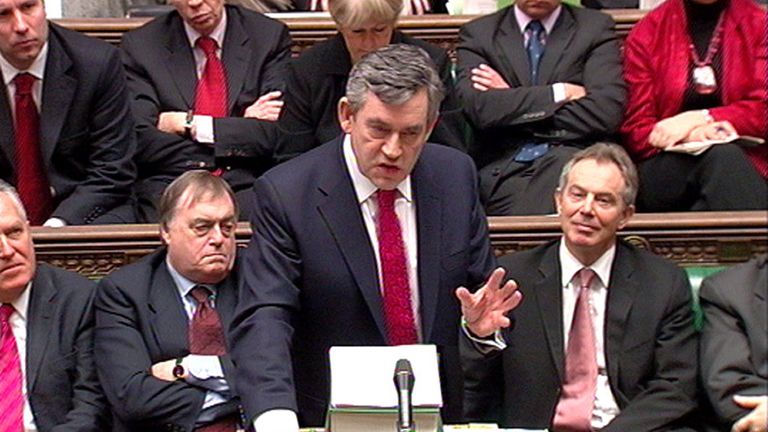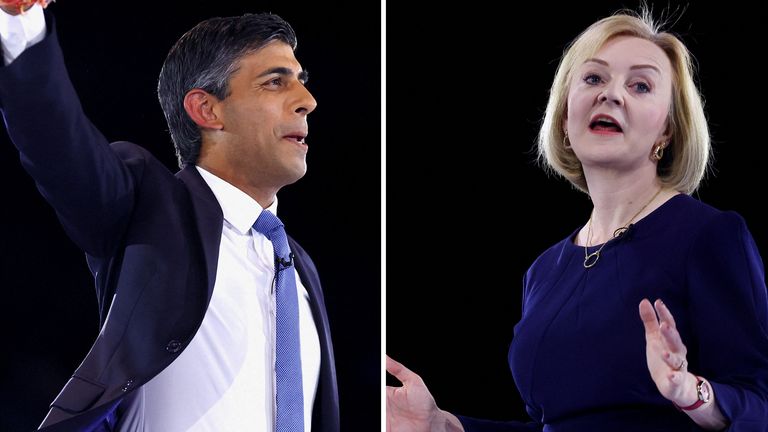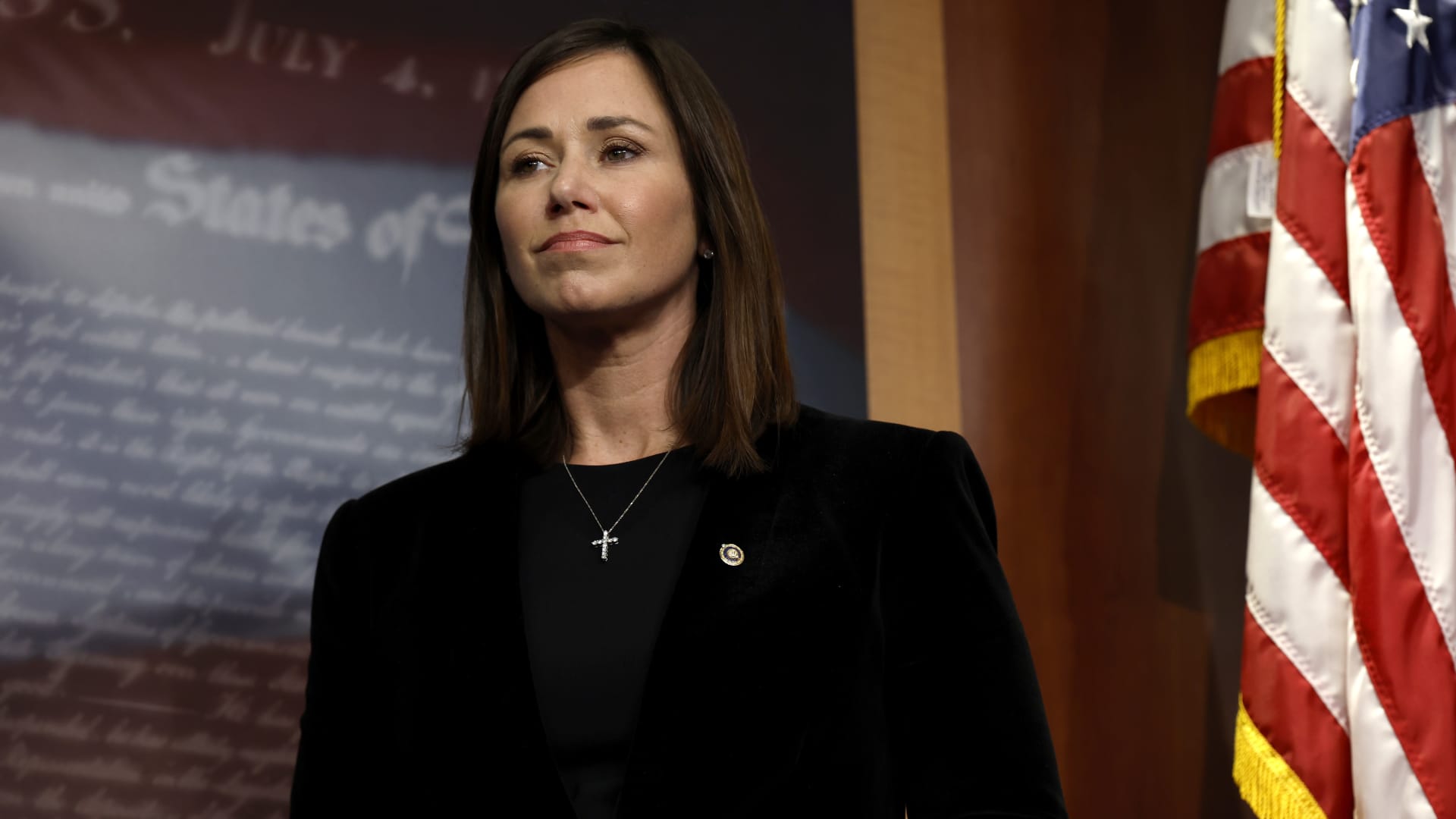Whether it is Liz Truss or Rishi Sunak who becomes Conservative leader on Monday, they will be the third in six years to become UK prime minister by the grace and favour of the Tory party membership and without the other 99% of the electorate giving their endorsement at a general election.
Liz Truss, and most likely it will be her, will not have a “personal mandate” to lead the country.
Will she do what both Boris Johnson and Theresa May ended up doing and call a general election to cement her position? The precedents suggest that she may well.
Mrs May took over from David Cameron in July 2016.
Since he had only just won an election in 2015 and the Fixed-Term Parliament Act (FTPA) was in force, she could have stayed in Number 10 uncontested until the summer of 2020.
She repeatedly said she wasn’t interested in an early election but then the Conservatives unexpectedly won a by-election in Copeland, with the then Labour leader Jeremy Corbyn seemingly unsellable to many voters.
Mrs May could not resist the chance to bolster her grip on office.
She managed to call an election in spite of the FTPA in June 2017.
Brenda from Bristol was famously dismayed: “Oh, not another one!”
It did not end as well as Mrs May had hoped. The Conservatives’ parliamentary majority was wiped out.
She was forced to do a deal to stay in power with the votes of the DUP. From then on she was on borrowed time.
Boris Johnson succeeded in forcing Mrs May out in July 2019.
He got her job but he also inherited her lack of a majority, made worse by the bitter divisions among Conservative MPs.
Once it became clear that he could not get what he wanted on Brexit through parliament, he and his then advisor Dominic Cummings went all out to force an election, which duly took place in December that year.
Under the rules an election was not due until the summer of 2022.
But buoyed by Mr Johnson’s personal popularity, and Mr Corbyn’s unpopularity, Mr Johnson was rewarded with a “stonking” Conservative working majority of 75-plus.
Mr Johnson made the case for an early election, Mrs May demonstrated the case against, then there is the unfortunate case of Gordon Brown who chose not to cash in on a boost in popularity when he took over from Tony Blair in 2007.
We will never know if he was right that he would not have done as well as the opinion polls suggested, though many in Labour still blame him for an opportunity missed.
Election not required until 2025
Liz Truss or Rishi Sunak will inherit Boris Johnson’s comfortable majority in parliament and the prospect of over two years in power.
At the latest, the next general election does not have to take place until January 2025.
The FTPA has been abolished, which means it will be effectively up to the new leader whether there is an early poll.
During the campaign, the two candidates have given different answers on a possible early election.
Mr Sunak, the former chancellor, sidestepped the question saying that the new prime minister’s “priority should be the economic challenge” and that in any case “we’ll lose the election if inflation is rampant”.
Liz Truss has been categorical in ruling it out. She assured the hustings in Cheltenham “I will not have an election before 2024” – and answered “no” to an early election in a quickfire debate.
But during the six weeks of this campaign, notably on handouts to offset energy costs, she has already shown that her word on the day is not necessarily her bond forever.
Recent polls suggest appetite for early vote
If an Ipsos poll for the Evening Standard last week is anything to go by, Brenda from Bristol is currently in a minority.
Perhaps because of outrage at the ousting of Mr Johnson, or perhaps because of outrage at his behaviour, a plurality, 51%, favour having a general election this year and that includes 40% of Conservative voters, more than the share of Tories who are opposed.
Standard arguments can be made for an early poll after a change of leader.
Cabinet Minister Jacob Rees-Mogg argued that there would “have to be a general election” if Boris Johnson was ousted because of the personal mandate he claimed Mr Johnson had won.
Mr Rees-Mogg subsequently emerged as a prominent Truss supporter and changed his tune when pressed on the need for an election by Talk TV’s Kate McCann.
Leaders may also use the threat of an election to bring an unruly parliamentary party to heel.
This leadership campaign has already exposed deep disagreements over tax and spend policy.
It is not clear that either Ms Truss or Mr Sunak would be guaranteed a majority for the various emergency budgetary measures they have outlined.
Current opinion polls show a clear lead for the Labour Party, suggesting that an early election – perhaps even before Christmas – would be a kamikaze move.
But a credible demonstration that it was being considered would allow the new leader to say to his or her MPs: “Back me or you will go down with me.”
Threats have recently had a habit of becoming a reality, at least at Westminster.
Labour sources are already letting it be known that they expect the new Tory leader and the Conservative Party to enjoy a boost in the polls.
This may be an insurance policy in the hope that it doesn’t happen this time.
New leaders’ popularity can be short-lived
New leaders usually do get a lift in popularity, though this may be short-lived.
In the difficult times ahead for the country, Prime Minister Truss will be tempted to exploit any boost she gets in an attempt to consolidate her hold on power.
She would be the first Conservative leader in modern times not to have been the first choice of either Tory MPs or her party membership.
Surveys showed clearly that the members wanted Penny Mordaunt or Kemi Badenoch as leader instead.
In the final round of voting, Mr Sunak was backed by 137 MPs – compared with 113 for Ms Truss and 105 for Ms Mordaunt.
Read more from Sky News:
Court would find privileges committee partygate probe ‘unlawful’
Sexual misconduct claims against cabinet minister revealed
Boris Johnson’s plane ‘used for boozy jolly’
Since Conservatives started choosing their leader this way, she would have the lowest ever level of backing by her MPs, 31.6%, compared with 38.6% for Mr Sunak, 51.3% for Mr Johnson, 60.5% for Mrs May, 45.5% for Mr Cameron and even 32.5%, for the ill-fated Iain Duncan Smith, who ended up being sacked by his own party. Interestingly IDS is tipped for a comeback in a Truss government.
If, and it is a big if, the Conservatives under Ms Truss pull into a clear lead in opinion polls, she may well be unable to resist the temptation of an early election.
With inflation reckoned to be heading towards 20% early next year, that looks like an unlikely scenario.
On the other hand, she has proven to be a risk-taker to get where she is now.
She could decide to gamble her chips before things get even worse.

